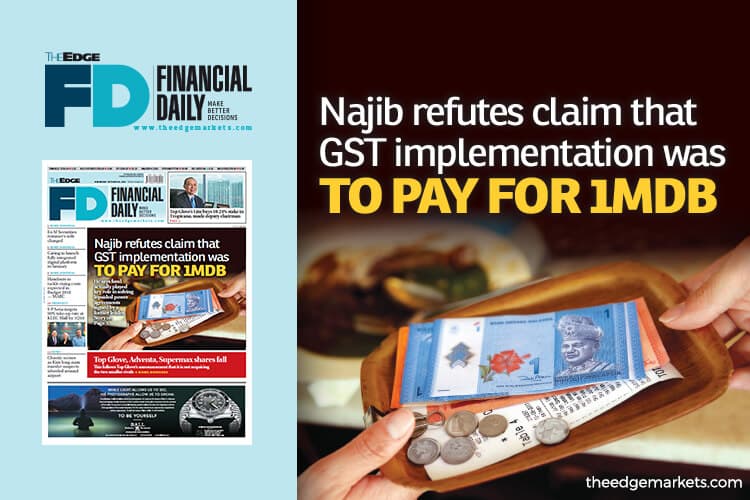
This article first appeared in The Edge Financial Daily on October 25, 2017
KUALA LUMPUR: Prime Minister Datuk Seri Najib Razak has refuted the claim that the implementation of the goods and services tax (GST) was to pay for state investment fund 1Malaysia Development Bhd (1MDB).
Calling it an absolute lie, the prime minister in a statement on “My Economic Vision For Malaysia” yesterday said 1MDB in fact played a key role in solving the lopsided power agreements signed by a former leader.
“When 1MDB entered the industry, it was the lowest bidder in all its agreements, thus saving Malaysia RM200 billion over the next 20 years. The report of one research house on the revised power agreements was simply titled, ‘No more sweetheart deals’,” he said.
Najib said 1MDB had also funded the construction and upgrade of eight military bases, which past governments were unable to do, as well as thousands of scholarships and haj trips. “It is true that 1MDB has had its share of problems, and we long ago revamped the management to correct the mistakes and bring it back to financial health,” he said.
According to Najib, a vast majority of countries globally — over 160 — have implemented the GST to make themselves stronger and more competitive. He noted that the government’s economic plan had led to the GST rate only needed to be at 6%, which is far lower than those of other countries.
“Strangely, the opposition claims not to understand this. They want to abolish it, but with no suggestion about how they would make up the RM41 billion GST raised last year,” said Najib, who is also finance minister.
Since Malaysia implemented the GST in 2015, many other countries, such as India and Egypt, have followed suit, while all the Gulf Cooperation Council countries will implement it on Jan 1 next year.
Meanwhile, as a nation of road users, Najib said the government had encouraged Khazanah Nasional Bhd and the Employees Provident Fund (EPF) to acquire PLUS Expressway outright in 2010 from the private holders. “This means that every ringgit collected now goes back either to the government or to EPF account holders. PLUS-owned highways such as the Penang Bridge, the Second Link and the North-South Expressway have also not seen any increase in toll rates since the buyout in 2010,” he said.
At the same time the roads were upgraded, including large sections of the North-South Expressway, which were expanded to three or four lanes compared to two previously.
“Other aspects of public transportation had, however, been severely neglected by one of my predecessors. He wasted billions on vanity projects instead of building the world-class infrastructure that Malaysia needs, both to attract investors and serve the people,” said Najib. — Bernama